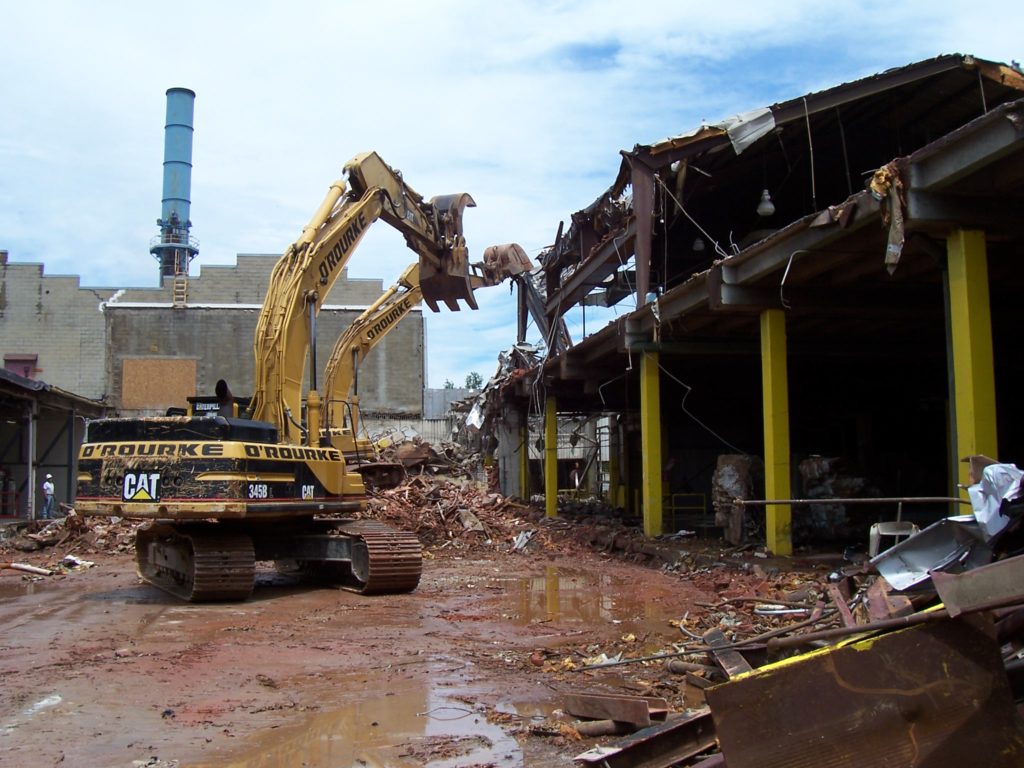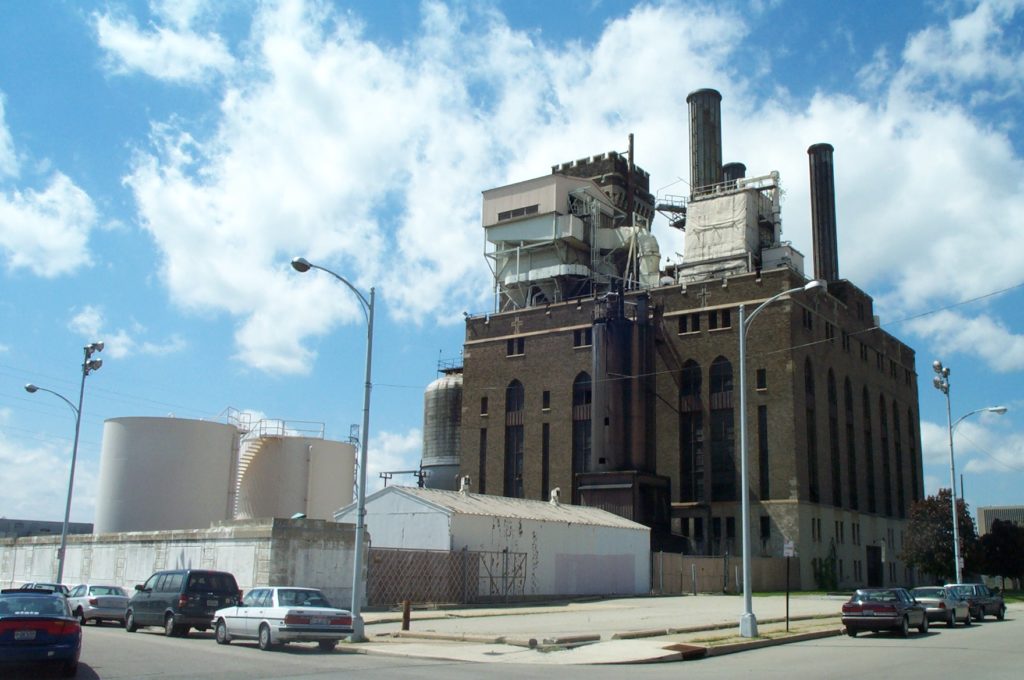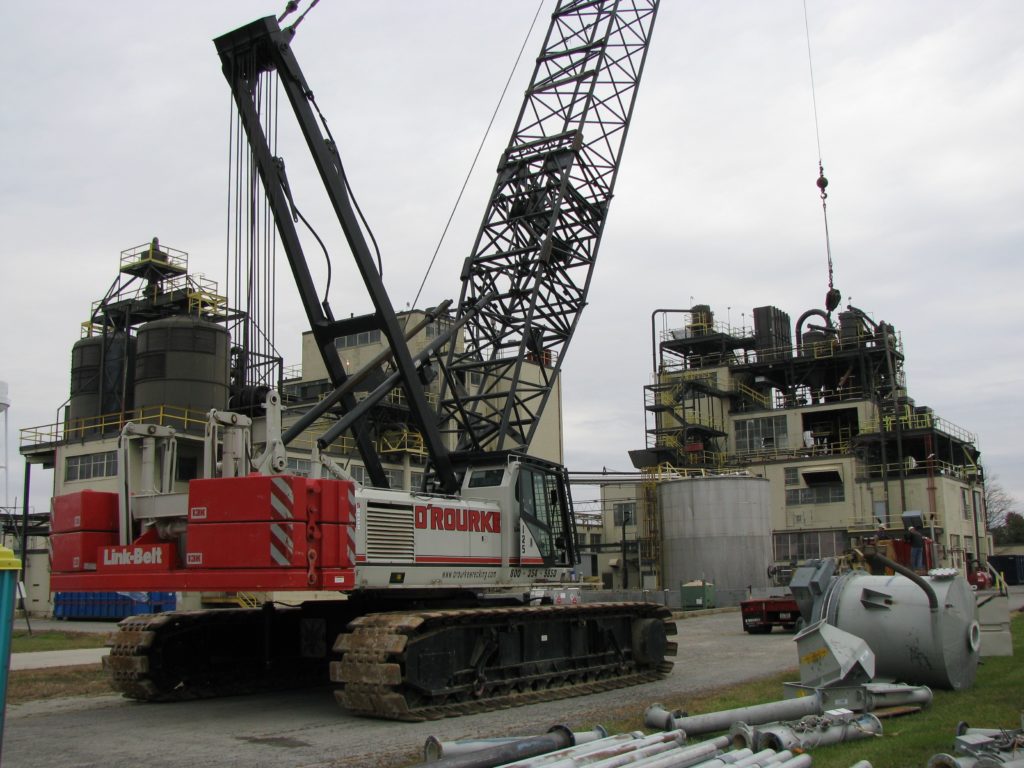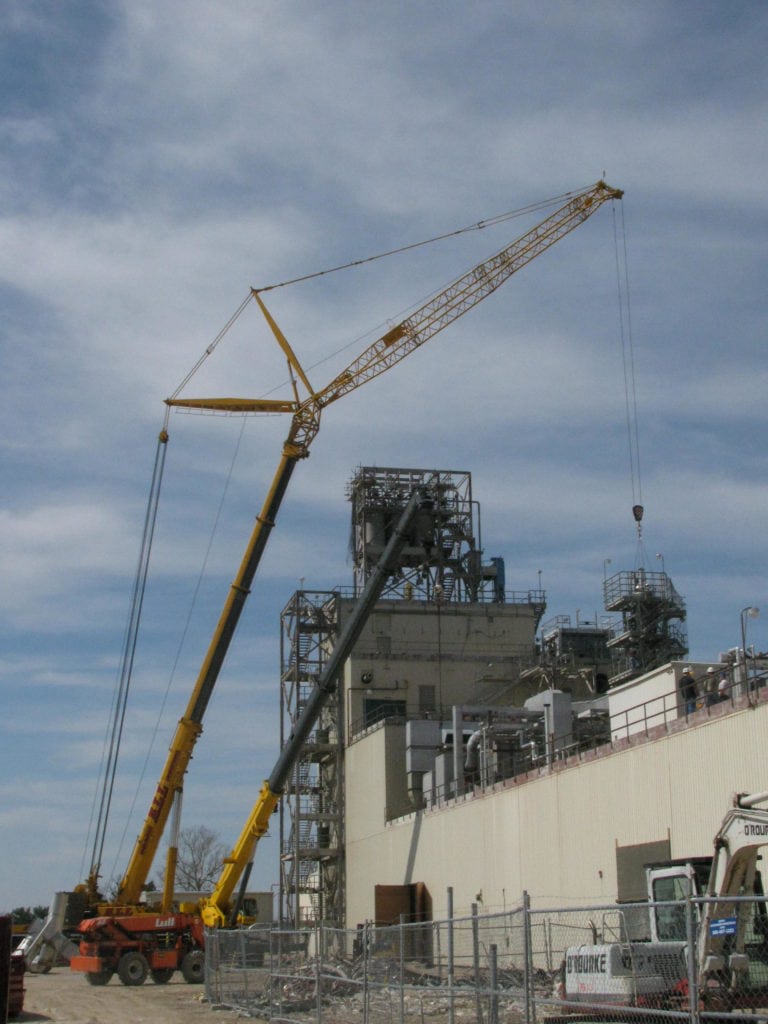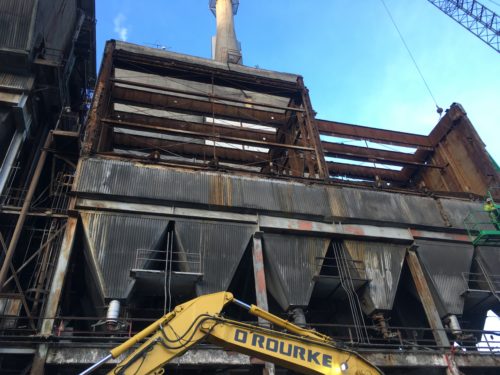 The economic environment of today is much different than in years past. Plant lifecycles are much shorter than they used to be and many power plants are shutting down as coal-fired power is being phased out in favor of renewable energy sources.
The economic environment of today is much different than in years past. Plant lifecycles are much shorter than they used to be and many power plants are shutting down as coal-fired power is being phased out in favor of renewable energy sources.
What happens to power plants when they’re no longer needed? That’s where O’ROURKE comes in. We’re experts in the field of power plant demolition, and we can make sure your plant is safely taken down and properly decommissioned.
O’ROURKE provides decommissioning and site services for projects of all sizes. We can engineer and implement turnkey power plant decommissioning services as a single-source solution, handling everything from demolition to environmental remediation and asset recovery.
Let’s go into more detail about the decommissioning process and how complete plant closures require a specialized skillset and knowledge that O’ROURKE offers.
Your Power Plant's Next Chapter Begins Today
Connect with our experienced estimators and receive a free, comprehensive quote tailored to your unique plant decommissioning needs. No surprises, just expert advice and reliable estimates.
Contact an EstimatorO'ROURKE's Proven Process For Decommissioning A Power Plant
Decommissioning a power plant requires careful planning through site assessment and execution to ensure safe and effective demolition implementation. The specific details for decommissioning a plant varies widely depending on the type of power — be it nuclear, coal, natural gas, hydroelectric, wind, or solar — and the regulations and requirements of the country or region where the facility is located.
With that said, the successful demolition of a power plant generally follows a basic 7-step process:
1. Survey & Project Scope Development – An engineering survey will be conducted on every plant structure targeted for demolition. This will allow our demolition specialists to collect data and determine the best demolition methods for your facility.
2. Planning – Our project managers will create an action plan with required activities, timelines, cost breakdowns, infrastructure needs, and Project Specific Demolition Health and Safety Plans for each phase of the project. We will also begin the process of obtaining necessary permissions from regulatory bodies and appropriate permits.
3. Hazardous Materials – Our licensed and trained personnel will properly remove and dispose of all hazardous materials. In addition, our personnel are trained in abatement, biological, hazardous chemicals remediation, and spill response. As a full-service demolition and environmental remediation company, we also offer on-call emergency response and project-specific decontamination services. Our unique capabilities allow us to provide a single-source solution for demolition, hazardous material abatement, and decontamination.
4. Waste Transportation & Disposal – Our highly trained and experienced hazardous waste experts will assess the waste, designate it for disposal, and arrange for the proper reporting, packaging, manifesting, shipment, processing, and final disposal. With access to all major waste processing and disposal facilities in the country, O’ROURKE can efficiently manage the process and arrange for the right services to meet your needs. We’re not limited to a specific facility or process, so we can make controlling your liability our top priority.
5. Dismantling – The dismantling phase begins next and is usually done in stages as the equipment may need to be given secondary decontamination. After this is complete, it may be dismantled further into its component parts. O’ROURKE has engineering and decommissioning expertise to carry out the initial plans, track the dismantled parts, and carry out the specialized demolition so the plant’s equipment is removed and dismantled safely and efficiently.
6. Implosion – Some facilities require imploding the powerhouse, nuclear reactors, stacks, or hung boilers to minimize risk and safety issues. We can handle this as well, putting our company’s sixty years of explosive demolition experience to work for you.
7. Recycling & Disposal – The final phase is the disposal process consisting of either complete disposal of the dismantled plant or complete shifting of the dismantled plant to another location, with partial disposal of old equipment. O’ROURKE will develop and implement a waste management process to help you achieve an efficient transition while maximizing your asset recovery. Finally, we clean up the site so that it can be transitioned and the land can be repurposed.
With this process, O’ROURKE’S team of experts has completed plant decommissioning projects of all sizes and successfully managed countless project-specific operation and safety plans. We will handle the small details and documentation, reducing your workload and helping you avoid liability.
Why Hire O'ROURKE For Your Next Project?
Decommissioning a power plant is necessary to ensure public safety and environmental protection. The process is challenging, but we have the experience and expertise to get the job done right. Our team of experts has experience working with demolition projects of all sizes and developing project-specific operation and safety plans. We handle the small details and documentation so you can reduce and avoid liability with zero safety incidents.
O’Rourke Wrecking Company has been in the power plant decommissioning services business for over sixty years. If you want to see our work in action, please feel free to check out some of our previous projects. We’re the ideal choice for the job, so please don’t hesitate to contact us today.
Ready to start your power plant decommissioning project?
Decommissioning a power plant is a complex, specialized process, and you need a team of professionals you can trust. That's why our experienced estimators are here to provide you with accurate, detailed, and transparent cost projections for your project. Don't navigate this complicated journey alone. Reach out today for a free, no-obligation quote to kick-start your decommissioning project. It's time to make the safe, environmentally responsible, and economically wise decision for your community and future generations.

